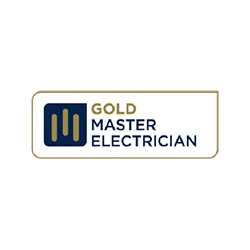$198* Solar System Check| T&Cs Apply, See Below
Solar power systems comprise of solar panels, inverters, batteries and a meter. As long as the solar PV system is installed properly, they remain low-maintenance devices. Electricity is generated by the solar panels while the solar inverters convert DC electricity to AC electricity to power the household appliances.
Solar inverters have more electrical components than solar panels. And they are much more sensitive to heat and equipment failure.
How Long Do Solar Inverters Last?
String solar inverters have a life expectancy of 10-15 years and micro inverters can last for 20-25 years.
Although they are rated to last for decades, many factors can affect the performance of the inverters such as:
- Heat
- Faulty installation
- Humidity
- Poor maintenance
Need a Solar Inverter specialist?

Call us on 1300 054 488
We Can Be There Today!

Send us an Enquiry Online
We’ll get back to you asap!
Why Do Solar Inverters Fail?
Overheating: Electrical components are highly sensitive to temperatures. If the maximum operating temperature is reached, it may lead to a reduction in electricity production. It is important to clean the dust filters regularly and ensure that the inverter has open airflow.
Grid Fault: High or low voltage due to a grid fault could prevent the inverter from working. Circuit breakers or fuses can be used to prevent the inverter from failure due to high voltage.
Maximum Power Point Tracking (MPPT): Solar panels generate different voltages – it is important to get the maximum efficiency irrespective of the different voltage levels. MPPT algorithms extract the maximum power from the solar panels. The MPPT tracker adjusts itself constantly to keep the solar panels at their Maximum Power Point. If you are experiencing reduced output, it could be due to a fault in the MPPT module.
Faulty Installation: A very common reason for failure in the solar inverter is faulty installation. If the solar panels are not matched with the inverter capacity, your inverter will not work efficiently. As a rule of thumb, your solar panel capacity should be up to 133% of the inverter capacity. For example, if you are using a 4 kW solar panel, your inverter capacity should be 3kW. If you are using a 6 kW solar panel, your inverter capacity should be 4.5 kW. Solar panels do not generate the power they are rated for
Fault codes: If your inverter is not working properly, it might show the error via a fault code. Refer to the inverter manual to troubleshoot the problem. Alternatively, you can see our troubleshooting guide for solar inverters.
What To Do if Your Solar Inverter Fails?
If your solar inverter is displaying a fault code or it is not restarting after a power outage, contact Fallon Solutions. Our CEC accredited solar electricians can diagnose and repair the solar inverter in a flash! We provide residential and commercial solar power solutions in Brisbane, Logan, Gold Coast, Ipswich, Moreton Bay and Redland.
Fallon Solutions Solar Electricians
Same-Day Service: Our electricians are available across Greater Brisbane, the Gold Coast and the Sunshine Coast so you never have to look far for our trusted technicians.
24/7 Emergency Electrician Service: We are proud to offer emergency electricians to residents of Greater Brisbane & the Gold Coast.
Excellent Customer Service: With thousands of 5-star reviews, we know the importance of quality customer service. Let us guide you through solar installation, repairs and services.
Highly Qualified & Knowledgeable: Our team of solar specialists are experts in their field. With up-to-date qualifications, insurance and extensive knowledge.
We aim to provide you with fast, reliable service with minimal impact to your day. Contact Fallon Solutions on 1300 054 488 or complete our online booking enquiry here.
Trusted by over 7,600 reviewers on Google.
Rated 4.6 stars from more than 7,600 reviews in Brisbane
Terms and Conditions
- Offer must be mentioned when booking.
- Homeowner must be present.
- Domestic job bookings only.
- Offer applies during normal booking hours only, not after-hours call-outs.
- Can’t be used in conjunction with any other offer (15% Home Protection Plan discount is applicable to additional works only).
- Offer is not redeemable for cash.
- Can’t be used with any membership loyalty gift card.


